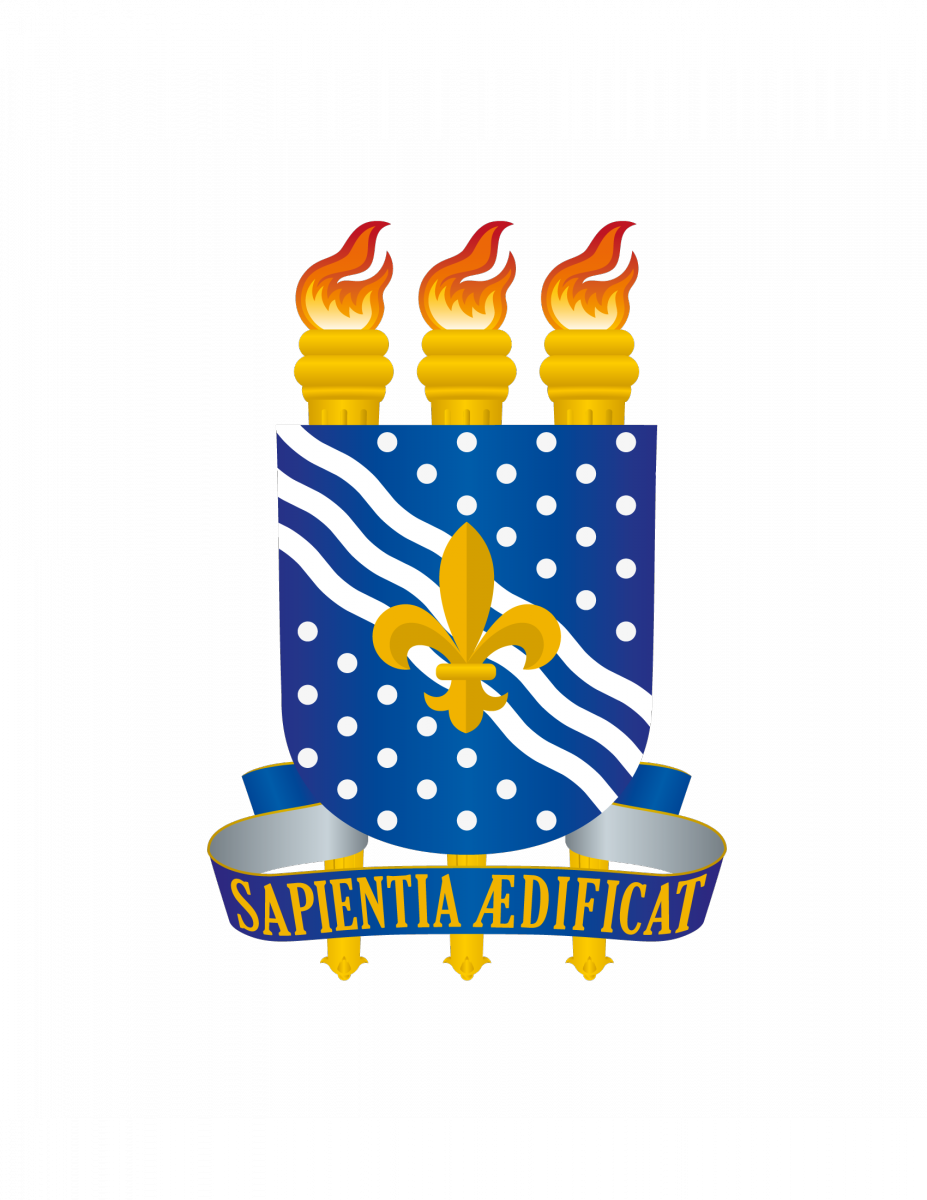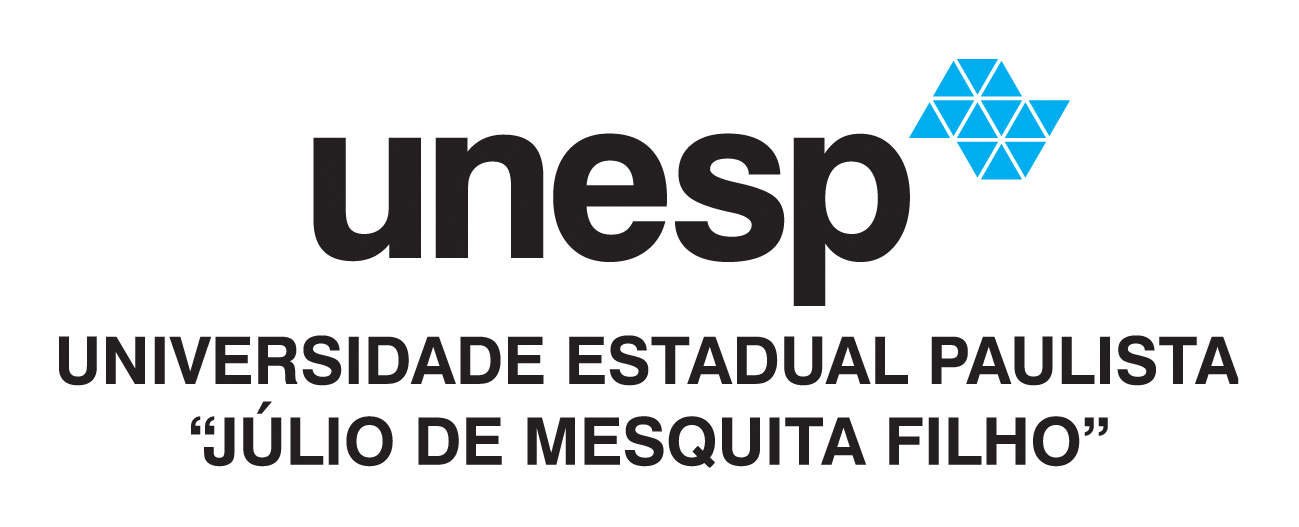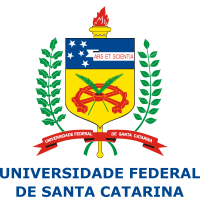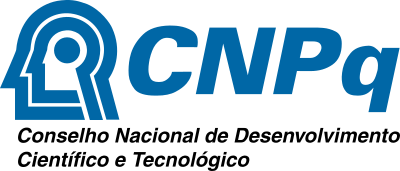Information, Data and Technology
Guilherme Ataíde Dias
Federal University of Paraíba (UFPB) | guilhermeataide@ccsa.ufpb.br | https://orcid.org/0000-0001-6576-0017 | https://lattes.cnpq.br/9553707435669429
Undergraduate in Computer Science from the Federal University of Paraíba UFPB Campus II (1990), Bachelor in Law by the University Center of João Pessoa UNIPE (2010), Master in Organization & Management by Central Connecticut State University? CCSU (1995), PhD in Information Science (Communication Sciences) at the University of São Paulo? USP (2003) and Post-Doctor by UNESP (2011). He is currently Associate Professor III at the Federal University of Paraíba, where he holds a degree in Information Science. He is involved with Post-Graduation through the Post-Graduate Program in Information Science and Postgraduate Program in Administration, both of UFPB. Has research interest in the following themes: Knowledge Representation; Information Architecture; Information security; Information and Communication Technologies; Health Information; Social networks; Free software; Law, Ethics and Intellectual Property in Cyberspace; Scientific Data Management; Legal Information; He is currently Research Productivity Scholar (PQ) at CNPq.
Moisés Lima Dutra
Federal University of Santa Catarina (UFSC) | moises.dutra@ufsc.br | https://orcid.org/0000-0003-1000-5553 | https://lattes.cnpq.br/1973469817655034
Professor, Federal University of Santa Catarina, Department of Information Science. PhD in Computing from the University of Lyon 1, France (2009). Master in Electrical Engineering, subarea Automação e Sistemas (2005) and Bachelor in Computing (1998) from the Federal University of Santa Catarina. His current lines of research are related to Applied Artificial Intelligence (Machine Learning, Deep Learning, Semantic Web, Linked Data) and Data Science (Big Data, IoT). It is linked to the research group ITI-RG (Intelligence, Technology and Information - Research Group).
Fábio Mosso Moreira
São Paulo State University (UNESP) | fabio.moreira@unesp.br | https://orcid.org/0000-0002-9582-4218 | https://lattes.cnpq.br/1614493890723021
Undergraduate degree in Business Administration from the Faculty of Sciences and Engineering (UNESP / Tupã). Master degree in Information Science - (UNESP / Marília). PhD student in the Graduate Program in Information Science (UNESP / Marília). Member of the Research Group - GPNTI (UNESP / Marília) and GPTAD (UNESP / Tupã). Collaborator of the Project Digital Skills for Family Farming (CoDAF). Content editor of the Electronic Journal Digital Skills for Family Farming (RECoDAF). Professional Technical Skill in Informatics from ETEC Massuyuki Kawano - Centro Paula Souza de Tupã. Professional experience in the ERP Information Systems for Logistics Operations. Works with research in Information Science, studying the use of digital resources for access to government data of Public Policies in the context of the small farmer.
Fernando de Assis Rodrigues
Federal University of Pará (UFPA) | fernando@rodrigues.pro.br | https://orcid.org/0000-0001-9634-1202 | https://lattes.cnpq.br/5556499513805582
Professor at Federal University of Pará. Ph.D. and M.S. in Information Science, Post-bachelor in Internet Systems and Bachelor of Science in Information Systems. Most of his experience is based on works developed as a Full Stack Developer and Database administrator, especially with Python, Java and PHP programming languages, as well as MySQL, MariaDB, SQLite3 and PostgreSQL databases. Also, he lectured classes related to the context of Computer Science to undergraduate and graduate students at UNESP. Currently, He workd as a postdoc researcher at UNESP labs, working in data studies.
Ricardo César Gonçalves Sant'Ana
São Paulo State University (UNESP) | ricardo.santana@unesp.br | https://orcid.org/0000-0003-1387-4519 | https://lattes.cnpq.br/1022660730972320
Associate Professor at the Paulista State University - UNESP, Faculty of Sciences and Engineering - FCE, Campus de Tupã, on an exclusive dedication, where he is Chairman of the Monitoring and Evaluation Committee of the Graduate Courses - CAACG, Local Coordinator of the Center for Studies and Pedagogical Practices - CENEPP and Local Ombudsman. Professor of the Post-Graduate Program in Information Science of the Paulista State University, Marília Campus. Graduated in Mathematics and Pedagogy, Master in Information Science (2002), Doctorate in Information Science (2008) and Freelance in Management Information Systems by UNESP (2017). He has specialized in Object Orientation (1996) and Management of Information Systems (1998). Ad hoc advisor of periodicals and development agencies. Member of the Research Group - New Technologies in Information GPNTI-UNESP. Has experience in the area of ??Computer Science, currently conducts research focused on: information science and information technology, investigating issues related to the Data Life Cycle, Transparency and Information Flow in Productive Chains. He worked as a professor at Faccat Faculdade de Ciências Contábeis e Administração de Tupã, where he coordinated a course of Administration with Qualification in Systems Analysis for ten years and the course of Licenciatura in Computing. He worked in the private sector as a consultant, integrator and researcher of new information technologies from 1988 to 2004.
Organizators
Guilherme Ataíde Dias
Federal University of Paraíba (UFPB) | guilhermeataide@ccsa.ufpb.br | https://orcid.org/0000-0001-6576-0017 | https://lattes.cnpq.br/9553707435669429
Undergraduate in Computer Science from the Federal University of Paraíba UFPB Campus II (1990), Bachelor in Law by the University Center of João Pessoa UNIPE (2010), Master in Organization & Management by Central Connecticut State University? CCSU (1995), PhD in Information Science (Communication Sciences) at the University of São Paulo? USP (2003) and Post-Doctor by UNESP (2011). He is currently Associate Professor III at the Federal University of Paraíba, where he holds a degree in Information Science. He is involved with Post-Graduation through the Post-Graduate Program in Information Science and Postgraduate Program in Administration, both of UFPB. Has research interest in the following themes: Knowledge Representation; Information Architecture; Information security; Information and Communication Technologies; Health Information; Social networks; Free software; Law, Ethics and Intellectual Property in Cyberspace; Scientific Data Management; Legal Information; He is currently Research Productivity Scholar (PQ) at CNPq.
Moisés Lima Dutra
Federal University of Santa Catarina (UFSC) | moises.dutra@ufsc.br | https://orcid.org/0000-0003-1000-5553 | https://lattes.cnpq.br/1973469817655034
Professor, Federal University of Santa Catarina, Department of Information Science. PhD in Computing from the University of Lyon 1, France (2009). Master in Electrical Engineering, subarea Automação e Sistemas (2005) and Bachelor in Computing (1998) from the Federal University of Santa Catarina. His current lines of research are related to Applied Artificial Intelligence (Machine Learning, Deep Learning, Semantic Web, Linked Data) and Data Science (Big Data, IoT). It is linked to the research group ITI-RG (Intelligence, Technology and Information - Research Group).
Fábio Mosso Moreira
São Paulo State University (UNESP) | fabio.moreira@unesp.br | https://orcid.org/0000-0002-9582-4218 | https://lattes.cnpq.br/1614493890723021
Undergraduate degree in Business Administration from the Faculty of Sciences and Engineering (UNESP / Tupã). Master degree in Information Science - (UNESP / Marília). PhD student in the Graduate Program in Information Science (UNESP / Marília). Member of the Research Group - GPNTI (UNESP / Marília) and GPTAD (UNESP / Tupã). Collaborator of the Project Digital Skills for Family Farming (CoDAF). Content editor of the Electronic Journal Digital Skills for Family Farming (RECoDAF). Professional Technical Skill in Informatics from ETEC Massuyuki Kawano - Centro Paula Souza de Tupã. Professional experience in the ERP Information Systems for Logistics Operations. Works with research in Information Science, studying the use of digital resources for access to government data of Public Policies in the context of the small farmer.
Fernando de Assis Rodrigues
Federal University of Pará (UFPA) | fernando@rodrigues.pro.br | https://orcid.org/0000-0001-9634-1202 | https://lattes.cnpq.br/5556499513805582
Professor at Federal University of Pará. Ph.D. and M.S. in Information Science, Post-bachelor in Internet Systems and Bachelor of Science in Information Systems. Most of his experience is based on works developed as a Full Stack Developer and Database administrator, especially with Python, Java and PHP programming languages, as well as MySQL, MariaDB, SQLite3 and PostgreSQL databases. Also, he lectured classes related to the context of Computer Science to undergraduate and graduate students at UNESP. Currently, He workd as a postdoc researcher at UNESP labs, working in data studies.
Ricardo César Gonçalves Sant'Ana
São Paulo State University (UNESP) | ricardo.santana@unesp.br | https://orcid.org/0000-0003-1387-4519 | https://lattes.cnpq.br/1022660730972320
Associate Professor at the Paulista State University - UNESP, Faculty of Sciences and Engineering - FCE, Campus de Tupã, on an exclusive dedication, where he is Chairman of the Monitoring and Evaluation Committee of the Graduate Courses - CAACG, Local Coordinator of the Center for Studies and Pedagogical Practices - CENEPP and Local Ombudsman. Professor of the Post-Graduate Program in Information Science of the Paulista State University, Marília Campus. Graduated in Mathematics and Pedagogy, Master in Information Science (2002), Doctorate in Information Science (2008) and Freelance in Management Information Systems by UNESP (2017). He has specialized in Object Orientation (1996) and Management of Information Systems (1998). Ad hoc advisor of periodicals and development agencies. Member of the Research Group - New Technologies in Information GPNTI-UNESP. Has experience in the area of ??Computer Science, currently conducts research focused on: information science and information technology, investigating issues related to the Data Life Cycle, Transparency and Information Flow in Productive Chains. He worked as a professor at Faccat Faculdade de Ciências Contábeis e Administração de Tupã, where he coordinated a course of Administration with Qualification in Systems Analysis for ten years and the course of Licenciatura in Computing. He worked in the private sector as a consultant, integrator and researcher of new information technologies from 1988 to 2004.
Analysis of the relationship between profile and academic performance of students enrolled in the programming introduction course using classification algorithms
Pages: 501 - 512
Authors
Roberto Silva de Oliveira Júnior
Federal University of Paraíba (UFPB) | roberto.silva@dce.ufpb.br | https://lattes.cnpq.br/5095958238014357
Has experience in the area of Computer Science.
Douglas Valentim de Almeida Cardins
Federal University of Paraíba (UFPB) | douglas.valentim@dce.ufpb.br | https://lattes.cnpq.br/0509156062041263
Has experience in the area of Computer Science. With some experience in programming in Java and Python.
Wenddell Juler Pereira de Lima
Federal University of Paraíba (UFPB) | wenddell.juler@dce.ufpb.br | https://lattes.cnpq.br/2195755521034980
Graduation in Computer Science - Post graduated in Software Engineering with emphasis on tests and qualities of software.
Thereza Patrícia Pereira Padilha
Federal University of Paraíba (UFPB) | thereza@dce.ufpb.br | https://lattes.cnpq.br/2084409307725504
Graduation in Technology in Data Processing from the University of Tocantins (1996), a Master's Degree in Computer Science and Computational Mathematics from the University of São Paulo (1999) and a PhD in Computer Science from the Federal University of Santa Catarina (2005). She is currently Associate Professor I of the Department of Exact Sciences, Campus IV, Federal University of Paraíba. He has experience in Computer Science, with emphasis on Artificial Intelligence, working mainly on the following topics: machine learning, knowledge acquisition, Bayesian networks and collaborative learning. He also acts as an institutional evaluator and courses of the National Institute of Studies and Educational Research (INEP).
Vanessa Farias Dantas
Federal University of Paraíba (UFPB) | vanessa@dce.ufpb.br | https://lattes.cnpq.br/5196069557142312
Graduation in Computer Science from the Federal University of Campina Grande (2001) and a Master's Degree in Computer Science from the Federal University of Campina Grande (2003). She is currently an assistant professor at the Federal University of Paraíba, Campus IV, with research in programming teaching.
Video Transcription
Este ano será realizado entre os dias 27 e 29 de novembro na cidade de João Pessoa na Paraíba no auditório da superintendência de tecnologia da informação da Universidade Federal da Paraíba.
O título do trabalho submetido é “Análise da relação entre perfil e desempenho acadêmico dos alunos matriculados na Disciplina de Introdução à Programação utilizando algoritmos de classificação” desempenho acadêmico dos alunos matriculados.
Os atores envolvidos são eu Roberto Silva Oliveira, Douglas Valentim de Almeida Cardins, Wenddell Juler Pereira de Lima, Thereza Patrícia Pereira Padilha, Vanessa Farias Dantase.
Uma preocupação do ensino superior do mundo é o índice de evasão são maiores nos primeiros períodos dos cursos. Nos casos dos cursos de computação e engenharia uma preocupação é a falta de atenção nas disciplinas de programação.
Nos últimos anos pesquisadores têm concentrado os estudos na bolsa de encontrar respostas para esses problemas analisando dados acadêmicos sociais e econômicos. O aumento da disponibilidade dos dados dos alunos no interesse dos pesquisadores na área de mineração de dados informática na educação faz surgir uma nova área de pesquisa conhecida como mineração de dados educacionais, visa explorar dados do ambiente educacional para descobrir padrões, isto é conhecimento oculto escolhido nos dá para contribuir no entendimento do processo de aprendizagem e assim acelerar a tomada de decisão sobre novas práticas pedagógicas.
Este artigo tem como objetivo geral investigar uma relação que o perfil social cultural acadêmico e econômico dos alunos em seu desempenho acadêmico na disciplina de introdução a programação a fim de minimizar os altos índices de evasão de reprovação na disciplina.
No meio do semestre letivo de 2017.1 foi aplicado formulário web para 42 alunos matriculados na disciplina de IP com 19 perguntas objetivas envolvendo aspectos pessoais econômicos e acadêmicos todas as perguntas do formulário fizeram parte do conjunto de dados obtidos como atributo ao fim do semestre foi disponibilizado a situação final dos alunos aprovado e reprovado que foi adicionado ao conjunto de dados como atributo clássico hotton.
Dos 42 registros, 34 eram da classe aprovado, 08 reprovado, em seguida os dados foram transformados e disponibilizados em formato .arff formato padrão da entrada para ferramenta WEKA.
Por fim os dados foram aplicados aos algoritmos de classificação OneR, PART e JRip, disponíveis na ferramenta WEKA e tem como sair do conjunto de regras resultados no OneR neste caso somente um atributo gasto no transporte foi usado para separar a classe aprovados e reprovados, onde classificou 33 instância aproximadamente, 78 pontos 6% e 9 incorretamente 21.4%. O alto gasto com transporte é uma possibilidade de reprovar na disciplina.
Resultados com algoritmos PART classificou 36 instâncias corretamente aproximadamente 85.7% e seis incorretamente 14,3%.
A regras geradas pelo algoritmo PART falavam que os alunos que não trabalha que tem idade menor de 18 anos tem grande possibilidade de ser aprovado, os que já tinha conhecimento prévio do curso têm maior possibilidade de ser aprovado, os que não trabalham e têm conhecimento prévio do curso tem possibilidade de ser aprovado.
Resultados do algoritmos JRip classificou 35 instâncias corretamente aproximadamente 83,3% e 7 incorretamente 16,7%.
A regra gerada pelo algoritmo JRip falava que os alunos que não têm conhecimento prévio de computação e tem idade maior que 19 tem maior possibilidade de ser reprovado na disciplina de introdução à programação.
Considerações finais o crescente índice de reprovações na educação na disciplina de introdução a programação é alarmante e cabíveis de medidas que visem o seu crescimento.
Logo foi primordial a captação de dados e averiguação e o estudo com a aplicação de mineração de dados apresentou-se como alternativa para a obtenção de informações pertinentes embora conjunto de dados aplicado tenha sido restrito principalmente no que diz respeito à quantidade registro dos alunos reprovados foi evadidos foi possível ter um modelo perfil de alunos que perdem a disciplina de IP mesmo com esses empecilhos na descrição do vídeo vocês podem entrar em contato conosco pois estaremos deixando nossos e-mails.




